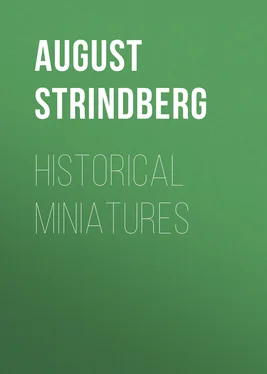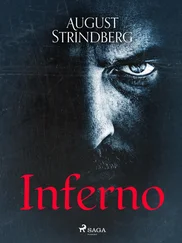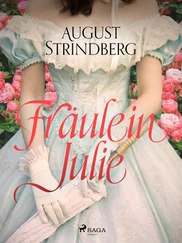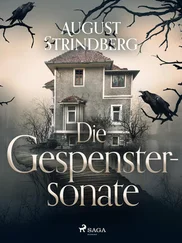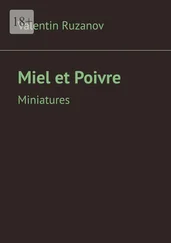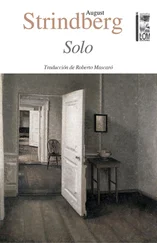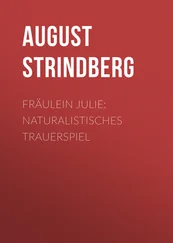August Strindberg - Historical Miniatures
Здесь есть возможность читать онлайн «August Strindberg - Historical Miniatures» — ознакомительный отрывок электронной книги совершенно бесплатно, а после прочтения отрывка купить полную версию. В некоторых случаях можно слушать аудио, скачать через торрент в формате fb2 и присутствует краткое содержание. Жанр: foreign_prose, foreign_antique, на английском языке. Описание произведения, (предисловие) а так же отзывы посетителей доступны на портале библиотеки ЛибКат.
- Название:Historical Miniatures
- Автор:
- Жанр:
- Год:неизвестен
- ISBN:нет данных
- Рейтинг книги:5 / 5. Голосов: 1
-
Избранное:Добавить в избранное
- Отзывы:
-
Ваша оценка:
- 100
- 1
- 2
- 3
- 4
- 5
Historical Miniatures: краткое содержание, описание и аннотация
Предлагаем к чтению аннотацию, описание, краткое содержание или предисловие (зависит от того, что написал сам автор книги «Historical Miniatures»). Если вы не нашли необходимую информацию о книге — напишите в комментариях, мы постараемся отыскать её.
Historical Miniatures — читать онлайн ознакомительный отрывок
Ниже представлен текст книги, разбитый по страницам. Система сохранения места последней прочитанной страницы, позволяет с удобством читать онлайн бесплатно книгу «Historical Miniatures», без необходимости каждый раз заново искать на чём Вы остановились. Поставьте закладку, и сможете в любой момент перейти на страницу, на которой закончили чтение.
Интервал:
Закладка:
There was a sudden change in the scene. The skeleton sank backwards like a drunken man; the lamps began to sway on their chains, the salt-cellar was spilt on the table.
“Ohioh!” cried Alcibiades, “Tralall! Ha! Ha! Ha! The table wobbles, the sofa rocks; am I drunk, or is the room drunk?”
All were alarmed, but Socrates commanded quiet. “A god is near! The earth shakes, and I hear … does it thunder? No! That is an earthquake.”
All jumped up, but Socrates continued, “Be quiet! It is already past.”
After they had all taken their places again, he continued: “I was five years old when Sparta was visited by an earthquake; twenty thousand men perished, and only six houses remained standing. Then it was Sparta. Now it is Athens. Yes, friends, a voice says to me, ‘Before a babe can become a man, we shall have been dispersed and destroyed like a bevy of birds.’”
Again the dog barked, and the door-keeper shouted. There entered an uninvited guest in a state of excitement.
Alcibiades greeted him. “It is Nicias,” he said. “Now I will be sober; the thoughtful Nicias comes to our feast. What is the matter?”
“Allow an uninvited guest.”
“Speak, Nicias!”
“Pericles!” began the new-comer hesitatingly, “your friend, our friend, the glory of Athens and Hellas,—Phidias is accused....”
“Stop! Silence!”
“Accused! O shame and disgrace! I cannot say it without weeping: Phidias is accused of having purloined gold from the statue of Athene.”
The silence which followed was first broken by Pericles: “Phidias hides his face in his mantle; he is ashamed for Athens. But by the gods and the nether world, let us swear to his innocence.”
“We swear!” exclaimed all like one man.
“I swear also,” said Nicias.
“Athens is dishonoured, if one has to swear that Phidias has not stolen.”
Nicias had approached Pericles, and, bowing to Aspasia, he whispered, “Pericles, your son Paralos is ill.”
“Of the pestilence! Follow me, Aspasia.”
“He is not my son, but yours; therefore I follow you.”
“The house collapses, friends depart, all beauty passes away, the ugly remains.”
“And the gods sleep.”
“Or have emigrated.”
“Or are dead! Let us make new ones.”
Another shock of earthquake extinguished the lamps, and all went out into the street, except Socrates and Alcibiades.
“Phidias accused of theft! Let the walls of the world fall in!” said Socrates, and sank, as was his custom, into a fit of absent-mindedness that resembled sleep.
Alcibiades took one of the largest double-goblets, veiled it, and improvised the following dithyramb:
“May everything break up from Pindus to the Caucasus!
Then will Prometheus be unbound and bestow fire again
on frozen mortals!
And Zeus descends to Hades, Pallas sells herself;
Apollo breaks his lyre in two, and cobbles shoes;
Ares lets his war-horse go, and minds sheep;
And on the ruins of all earthly glory, stands Alcibiades alone,
In the full consciousness of his almightiness,
And laughs!”
The pestilence had broken out in Athens accompanied by shocks of earthquake.
When Pericles, accompanied by Aspasia, reached his house, his son by his divorced wife was dead.
According to the prevailing custom, and to show that he had not been murdered, the corpse was placed in the doorway. A small coffin of cedar-wood, painted red and black, stood on a bier, and showed the dead child dressed in a white shroud. He had a garland on his head, woven of the plant of death, the strong-scented Apium or celery. In his mouth he had an obol as Charon’s fee.
Pericles uttered a prayer in an undertone, without showing especially deep sorrow, for he had gone through much, and learnt to suffer.
“Two sons the gods have taken from me. Are they enough to atone?”
“What have you to atone for?” asked Aspasia.
“One must suffer for another; the individual for the State. Pericles has suffered for Athens.”
“Pardon me that my tears dry sooner than yours. The thought that our son lives, gives me comfort.”
“It comforts me also, but not so much.”
“Shall I go, before your wife comes?”
“You must not leave me, for I am ill.”
“You have spoken of it for a long time now. Is it serious?”
“My soul is sick. When the State suffers, I am ill.... There comes the mother of the dead.”
A black-robed woman appeared in the doorway; she wore a veil in order to hide the fact that her hair was cut off; she had a garland in her hand, and a slave followed her with a torch.
She did not immediately notice Aspasia’s presence, greeted her former husband with a glance, and laid the garland at the dead boy’s feet. “I only bring a funeral garland for my son,” she said, “but instead of the obol, he shall take a kiss from the lips of his mother.”
She threw herself on the dead child, and kissed him.
“Beware of the dead!” said Pericles, and seized her arm; “he died of the pestilence.”
“My life has been a lingering death; a quick one is preferable to me.”
Then she noticed Aspasia, and, rising, said with quiet dignity, “Tell your friend to go.”
“She goes, and I follow her.”
“That is right! For now, my Pericles, the last tie between us is dissolved! Farewell!”
“Farewell, my wife!”
And, turning to Aspasia, he said, “Give me your hand, my spouse.”
“Here it is.”
The mourning mother lingered: “We shall all meet again some day, shall we not? And then as friends—you, she, and he who is gone before to prepare a dwelling for the hearts which are separated by the narrow laws of life.”
Pericles and Socrates wandered in the avenue of plane-trees below the Hemicyklion, and conversed together.
“Phidias has been acquitted of theft, but re-arrested on the charge of blaspheming the gods of the State.”
“Arrested? Phidias!”
“They say that he has represented me and himself in Athene’s shield.”
“That is the mob’s doing, which hates all greatness! Anaxagoras banished because he was too wise; Aristides banished because he was too just; Themistocles, Pausanias.... What did you do, Pericles, when you gave the people power?”
“What was lawful and right. I fall certainly by my own sword, but honourably. I go about and am dying piecemeal, like Athens. Did we know that we adorned our statues for a funeral procession? that we were weaving our own shrouds? that the choruses of our tragedies were dirges?”
“Athens is dying—yes! But of what?”
“Of Sparta.”
“What is Sparta?”
“Sparta is Heracles; the club, the lion-skin, brute-strength. We Athenians are the sons of Theseus, ranged against the Heraclidae, Dorians, and Ionians. Athens dies by Sparta’s hand, but Hellas dies by her own.”
“I believe the gods have forsaken us.”
“I believe so too, but the Divine lives.”
“There comes Nicias, the messenger of misfortune.” It was Nicias; and when he read the question in the faces and glances of the two, he answered, without waiting to be asked: “From the Agora!”
“What is the news from the Agora?”
“The Assembly seeks help from the Macedonians.”
“Why not from the Persians? Good! then the end is near. Do they seek help from the enemy? From the barbarian, the Macedonian, who lies above us like a lion on a hill. Go, Nicias, and say, ‘Pericles is dying.’ And ask them to choose the worthiest as his successor! Not the most unworthy! Go, Nicias, but go quickly.”
“I go,” said Nicias, “but for a physician.”
And he went.
“No physician can cure me!” answered Pericles; but in a weak voice, as though he spoke to himself. He took his old seat in the Hemicyklion. When he had rested a while, he made Socrates a sign to come near, for he did not wish to raise his voice.
Читать дальшеИнтервал:
Закладка:
Похожие книги на «Historical Miniatures»
Представляем Вашему вниманию похожие книги на «Historical Miniatures» списком для выбора. Мы отобрали схожую по названию и смыслу литературу в надежде предоставить читателям больше вариантов отыскать новые, интересные, ещё непрочитанные произведения.
Обсуждение, отзывы о книге «Historical Miniatures» и просто собственные мнения читателей. Оставьте ваши комментарии, напишите, что Вы думаете о произведении, его смысле или главных героях. Укажите что конкретно понравилось, а что нет, и почему Вы так считаете.
